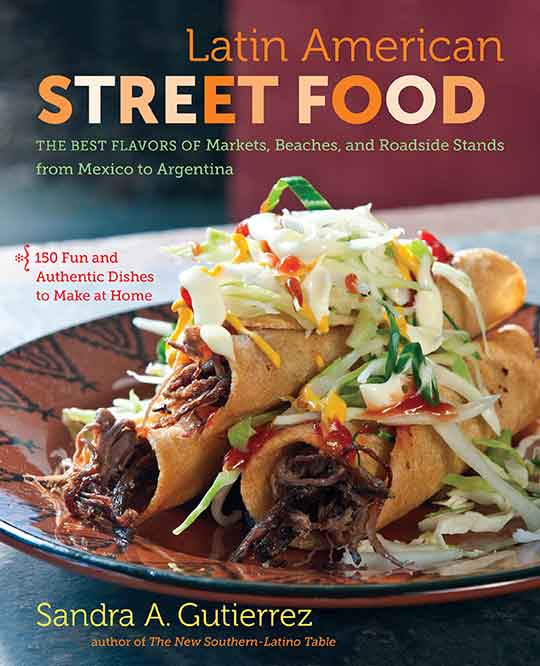
LATIN AMERICAN STREET FOOD
Sandra Gutierrez
University of North Carolina Press
September 2013
$35.00/Hardcover
ISBN-13: 978-1469608709
Sandra Gutierrez
University of North Carolina Press
September 2013
$35.00/Hardcover
ISBN-13: 978-1469608709
Sandra A. Gutierrez, who grew up in the United States and Guatemala, is a food writer, culinary instructor, and recipe developer. She is author of The New Southern-Latino Table: Recipes That Bring Together the Bold and Beloved Flavors of Latin America and the American South. She lives in Cary, N.C.
From tamales to tacos, food on a stick to ceviches, and empanadas to desserts, Sandra A. Gutierrez’s LATIN AMERICAN STREET FOOD takes cooks on a tasting tour of the most popular and delicious culinary finds of twenty Latin American countries, including Mexico, Cuba, Peru, and Brazil, translating them into 150 easy recipes for the home kitchen. These exciting, delectable, and accessible foods will satisfy everyone.
Sharing fascinating culinary history, fun personal stories, and how-to tips, Gutierrez showcases some of the most recognized and irresistible street foods, such as Mexican Tacos al Pastor, Guatemalan Christmas Tamales, Salvadorian Pupusas, and Cuban Sandwiches. She also presents succulent and unexpected dishes sure to become favorites, such as Costa Rican Tacos Ticos, Brazilian Avocado Ice Cream, and Peruvian Fried Squid Ceviche. Beautifully illustrated, the book includes a list of sources for ingredients. Watch the book trailer here.